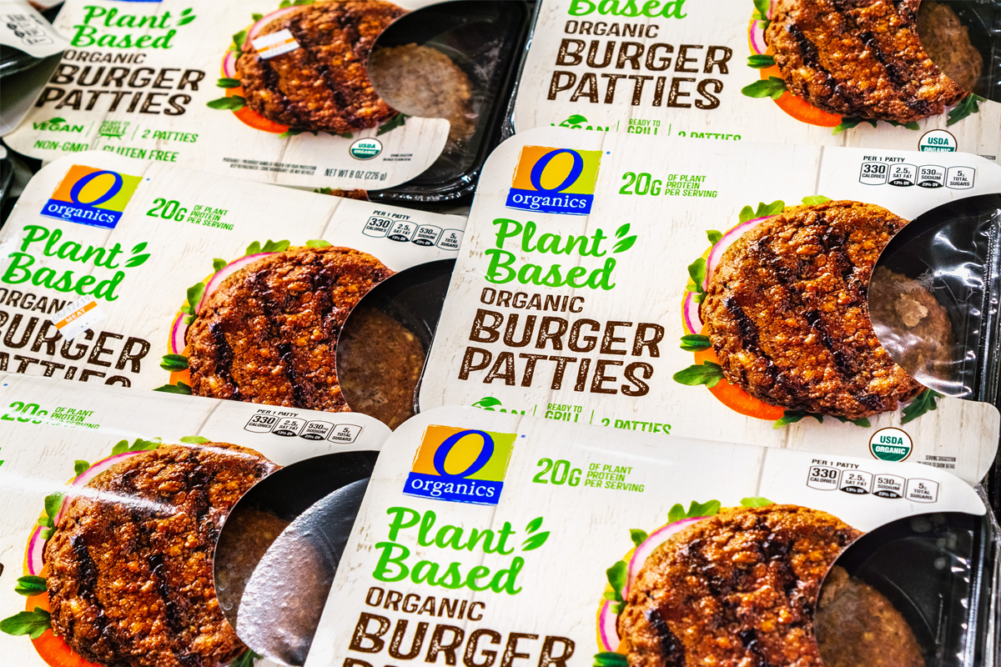KANSAS CITY — Sustainability and school meals are ways to jump-start sales of plant-based meat alternatives, said Chris DuBois, senior vice president, protein practice leader for IRI, a Chicago-based market research firm.
Household penetration of meat alternatives in the United States inched up 0.1% in the 52-week period ended March 20, according to IRI.
“If you want to think whether we’re flat, boy, that looks flat,” Mr. DuBois said of the category in a May 11 webinar presented by Food Business News.
Meat substitute sales in the United States jumped to $1.35 billion in 2020 from $755 million in 2018, but growth has slowed, reaching $1.38 billion in the 52-week period ended March 20 of this year. The percentage of US households purchasing meat alternatives stood at 19.6% on March 20, up from 19.5% in 2021 and 18.7% in 2020.
Younger consumers could lift the ceiling for category growth. Plant-based foods are growing anywhere from 10% to 50% on school and institutional menus, according to Forward Food, a proponent of plant-forward and sustainable menus. By 2025, 50% of US institutional meals could be plant-based.
“If you watch the generations coming out of high school and college and see the purchase changes, this is one of the reflection points that could change that ceiling,” Mr. DuBois said.
Annual share of sustainably marketed products rose to 17% in 2021 from 16.8% in 2020 and 13.7% in 2015, according to a study from IRI and New York University’s Stern School of Business. Companies are starting to put carbon footprint figures on product labels. CarbonCloud provides third-party verification and measures sustainability impacts of items like apples, pork sausage and plant-based alternatives.
“This measurement piece is favorable for plant-based meat substitutes,” Mr. DuBois said.
Plant-based meat alternative buyers skew to millennials and Gen X households with higher incomes, according to IRI. The millennials often have higher incomes and are African American or Asian.
Brand leaders in the category for the 52-week period ended March 20 were MorningStar Farms with sales of $374 million, Beyond Meat with sales of $274 million, Impossible with sales of $167 million and Gardein with sales of $154 million.
Brand consolidation soon could hit the category, Mr. DuBois said.
“There’s a lot of motion going on over on the brand side,” he said. “I think over the next year or two you’re going to see brand leaders emerge.”
The Food Business News webinar may be viewed on-demand here.




